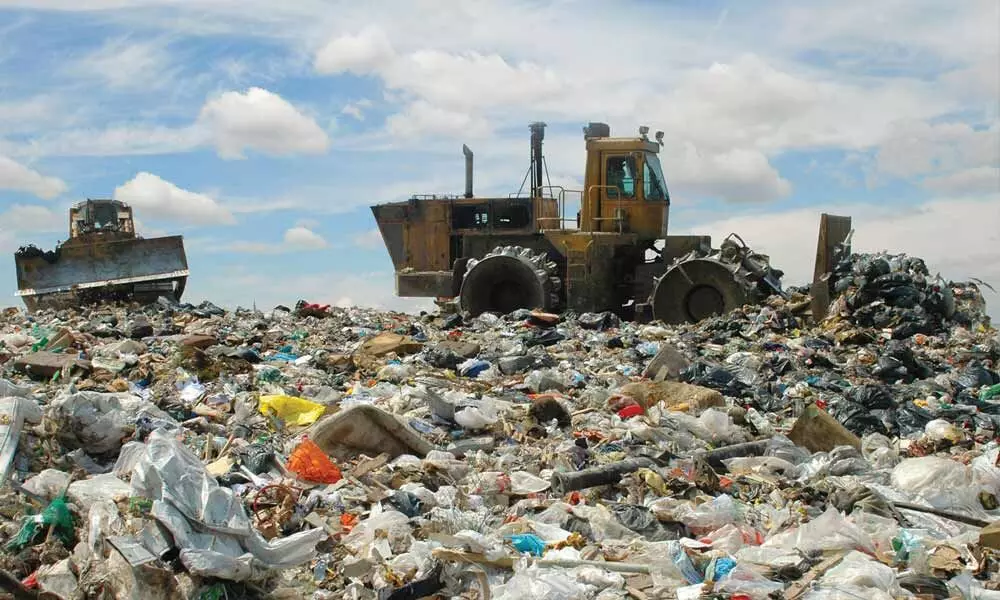Centre, State should join hands on waste management
Recently, the Indian Railways and the Bengal government have agreed to a proposal to set up a waste stabilisation pond (WSP) instead of a sewerage treatment plant (STP) to reduce pollution around Santragachhi jheel.
image for illustrative purpose

Recently, the Indian Railways and the Bengal government have agreed to a proposal to set up a waste stabilisation pond (WSP) instead of a sewerage treatment plant (STP) to reduce pollution around Santragachhi jheel. But the Railways disagreed with a State proposal to set up a public toilet, saying that removal of encroachments must be dealt with first and setting toilets will only make the illegal encroachments permanent. In an official communique, the South Eastern Railways said that according to the September 2020 order, the State and the Railways would provide for the STP along with drains around the jheel - around 13,75,000 square feet - at a cost-sharing basis to prevent pollution.
Railways would provide land for it. The Railways had received a waste management plan and later a request for land by the State. The plan wasn't proper, so it has asked the State to submit it afresh and a cost estimate has been given to the state. This was followed by the KMDA proposal of WSP on November 24. The Railways, however, pointed out that the 160 encroachers beside Santragachhi jheel could not be removed till date due to non-availability of State police. This type of conflicts and confrontations between two government authorities, which stand in the way of proper execution of waste management plan, should be avoided, by all means.
Mind you that the Parliamentary Standing Committee on Urban Development's in its report submitted on March 17, 2021, clearly admitted that waste management has become a major issue. The committee urged the central and State government as well as urban local bodies (ULB) to come up with a conjunct initiative. If waste management is truly a priority, the State government must also address and take care of the issue of e-waste, otherwise its ambitious e-vehicles dream may land the State in some trouble. The West Bengal government has set a target to roll out 10 lakh electric vehicles in next five years to curb pollution. But the plan has sparked a new pollution concern as it lacks a proper roadmap to deal with the rechargeable lithium-ion batteries that power these vehicles. The government has also announced plans to set up at least 1 lakh battery-charging stations within five years to put in place a proper ecosystem for the new technology with a vehicle-charging point ratio of 8:1. The new e-vehicle policy, however, did not elaborate how the government proposes to deal with the dead batteries. The policy simply said one of its targets will be to "recycle and reuse used batteries and dispose of the rejected batteries in an environment-friendly manner to avoid pollution."
Environmentalists, however, pointed out that unless the electricity to charge the batteries are sourced from renewable energy and recycling industries are set up to take care of e-wastes, the electric mobility push could aggravate the pollution crisis. The electric vehicle push will definitely reduce emission of carbon dioxide, but to curb overall pollution and achieve the target of reducing global warming below two degrees Celsius, it is important to avoid sourcing coal-based or oil-based electricity to charge the batteries, which is unlikely in India.

